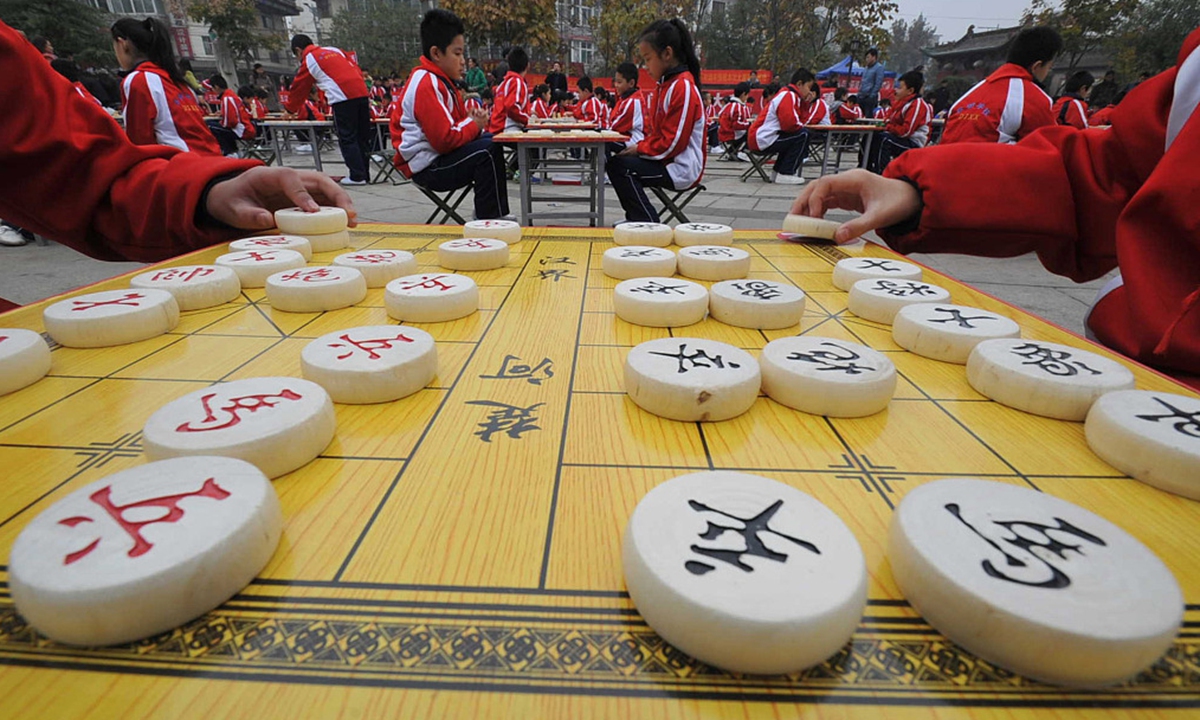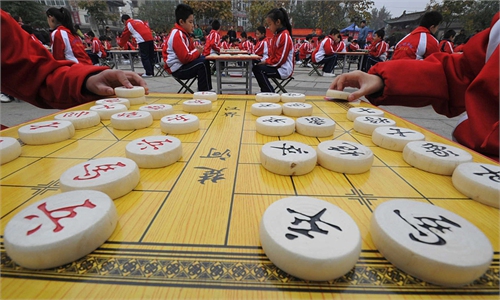ARTS / TV
Board games Xiangqi and Weiqi originated in China, a fact that South Korean public should know

Students play Xiangqi in Yuncheng, North China's Shanxi Province on November 14, 2015. Photo: VCG
The eighth episode of South Korean TV series Melancholia shows Yut, Xiangqi and Weiqi as South Korean traditional games confusing the audience about the origins of these ancient board games. Actually, Xiangqi, Chinese chess, and Weiqi, known in the West as Go, were both invented in China thousands of years ago and have been played by many generations until now.
The episode of the series about scandals and corruption in private high schools in Gangnam district of Seoul was updated on Thursday. In the episode, a student introduces her "math museum" project in class. She explains that she uses South Korean traditional board games, like Yut, Xiangqi and Weiqi, to understand math problems and does not clarify the origins of the games which left some netizens confused, guancha.cn reported.
There are clear historical records about the origins of Xiangqi and Weiqi. The earliest written reference about Weiqi, which literally means encirclement in Chinese, is generally recognized as the historical annals of Zuo Zhuan that refer a historical event in 548 BC. The Analects of Confucius and two books written by Mencius in the Warring States Period (475 BC-221 BC) all recorded the ancient board game.
The standard rules of Weiqi were defined in the Tang Dynasty (618-907) and the game was considered one of the four cultivated arts of the Chinese scholar gentleman, along with calligraphy, painting and playing the musical instrument guqin.
The game was introduced to the Korean Peninsula in the Sui Dynasty (581-618).
The invention time Xiangqi, also known as Chinese chess, was recorded during the Warring States Period. According to the ancient text Shuo Yuan, it was one of the noble interests of the Kingdom of Qi.
Emperor Wu of the Northern Zhou Dynasty (557-581) wrote a book in 569 called Xiang Jing. It described the rules of an astronomically themed game called Xiangqi. With the economic and cultural development during the Qing Dynasty (1644-19120), Xiangqi entered a new stage. Many different schools and players came into prominence.
The two board games have been the most popular games in China and also around the world wherever there is a significant heritage of Chinese culture.
"Playing Weiqi helps train and improve logical thinking," Wu, a 28-year-old Chinese man who has been playing the board game for 20 years, told the Global Times on Monday. "You have to keep considering the next step and your enemy's next step if you want to win. It has become trendy for Chinese parents to teach children how to play Weiqi to improve grades in math," Wu said.
Yut is a traditional board game from a Korean ethnic group which was used as method of divination and communication with the ancestors to pray for next year's harvest, according to the official website of the Heilongjiang Provincial Culture and Tourism Office.
Authorities of Northeast China's Heilongjiang Province listed the game as one of intangible cultural heritage of the province.
"Hope the South Korean audience can understand the origins of these board games when they watch the TV series," a Sina Weibo user commented.

